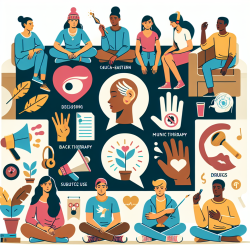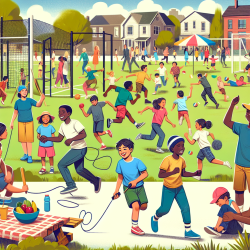In today's fast-paced world, the mental health of young people is more critical than ever. With increasing pressures from social media, academics, and societal expectations, creating youth-friendly mental health and substance use services is essential. A recent scoping review titled "What makes mental health and substance use services youth friendly?" provides valuable insights into making these services more accessible and effective for young people.
The Importance of Youth-Friendly Services
Youth-friendly services are designed to be accessible, appealing, and respectful of young people's unique needs. According to the research by Hawke et al., these services should integrate the voices of youth at every level—from policy-making to service delivery. By doing so, we can improve treatment uptake, engagement, and satisfaction among young people.
Key Characteristics of Youth-Friendly Services
- Integrated and Inclusive Policies: Services should offer comprehensive care that includes mental and physical health support, substance use treatment, and social services. This integration makes it easier for youth to access the help they need without stigma or logistical barriers.
- Safe and Welcoming Environments: The physical space should be comfortable and inviting. Bright colors, comfortable seating, and informational materials can help create a non-clinical atmosphere that puts young people at ease.
- Engaging Service Providers: Staff should be welcoming, genuine, and skilled in communicating with youth. Training in cultural competency and trauma-informed care is crucial for understanding the diverse backgrounds of young clients.
- Minimal Wait Times: Quick access to services is vital. Long wait times can discourage youth from seeking help or worsen their mental health conditions.
- Youth Voice in Decision-Making: Young people should have a say in their treatment plans. This empowerment can lead to better engagement and outcomes.
The Role of Technology
Today's youth are digital natives who rely heavily on technology for communication and information. Mental health services should leverage technological platforms like social media and websites to promote their offerings discreetly. Providing online resources can help educate young people about mental health issues while maintaining privacy.
The Impact of Youth-Friendly Services
The expected impact of implementing youth-friendly characteristics is significant. By involving young people in service design and delivery, we can reduce stigma, increase coping skills, and foster empowerment. These changes not only improve individual outcomes but also contribute to broader social change by promoting mental health equity.
A Call for Further Research
While the scoping review provides a strong foundation for understanding youth-friendly services, further research is needed to measure their impact on treatment outcomes. Practitioners are encouraged to explore creative methodologies to assess how these services affect youth engagement and satisfaction.
To read the original research paper, please follow this link: What makes mental health and substance use services youth friendly? A scoping review of literature.










